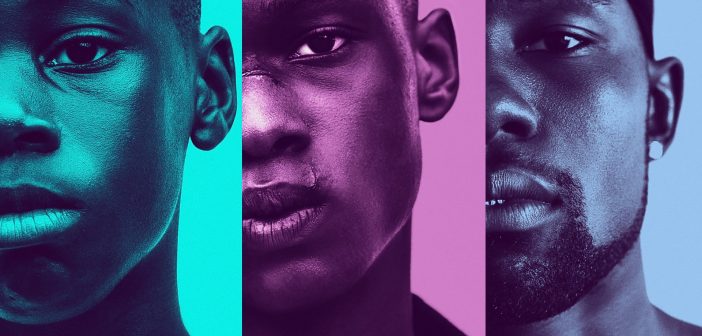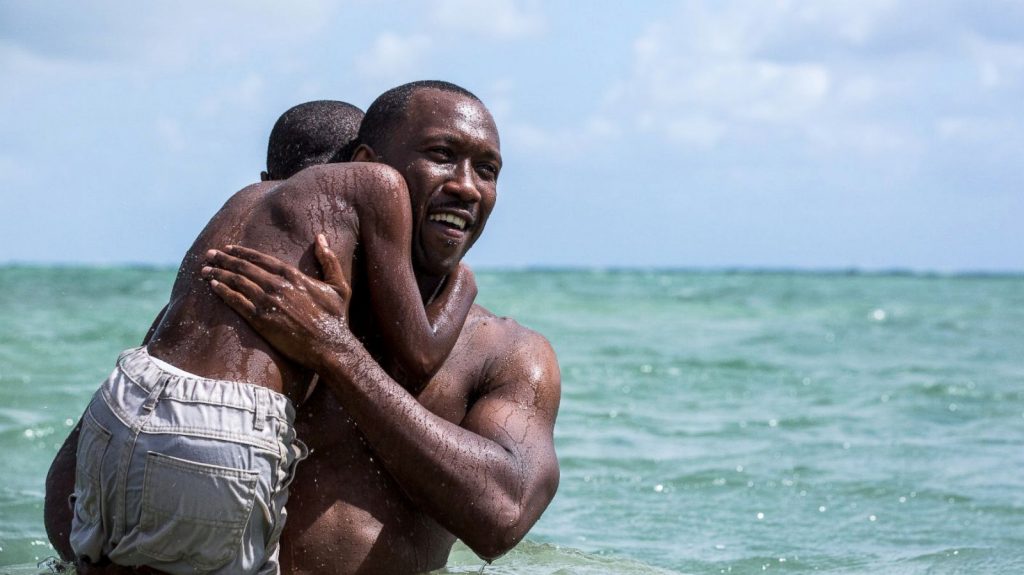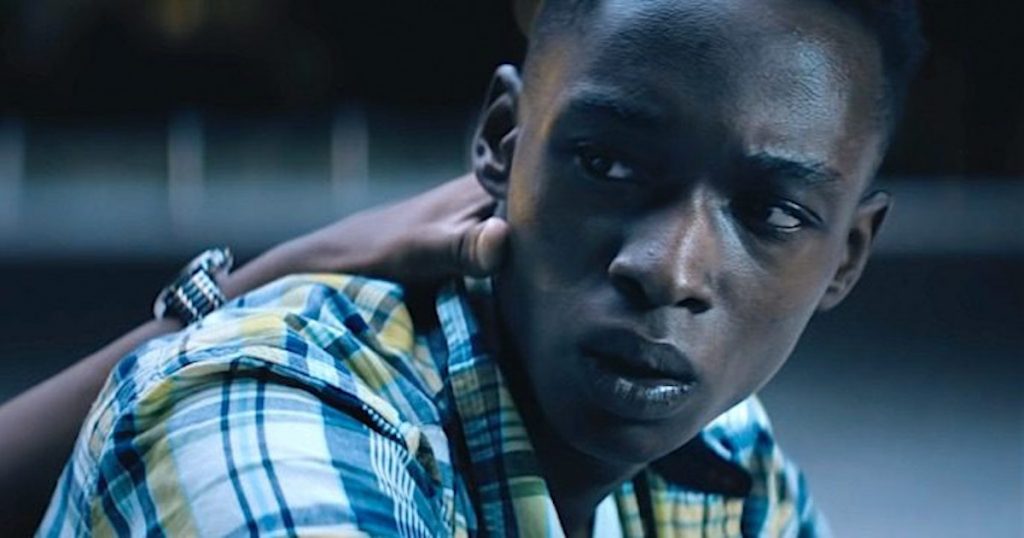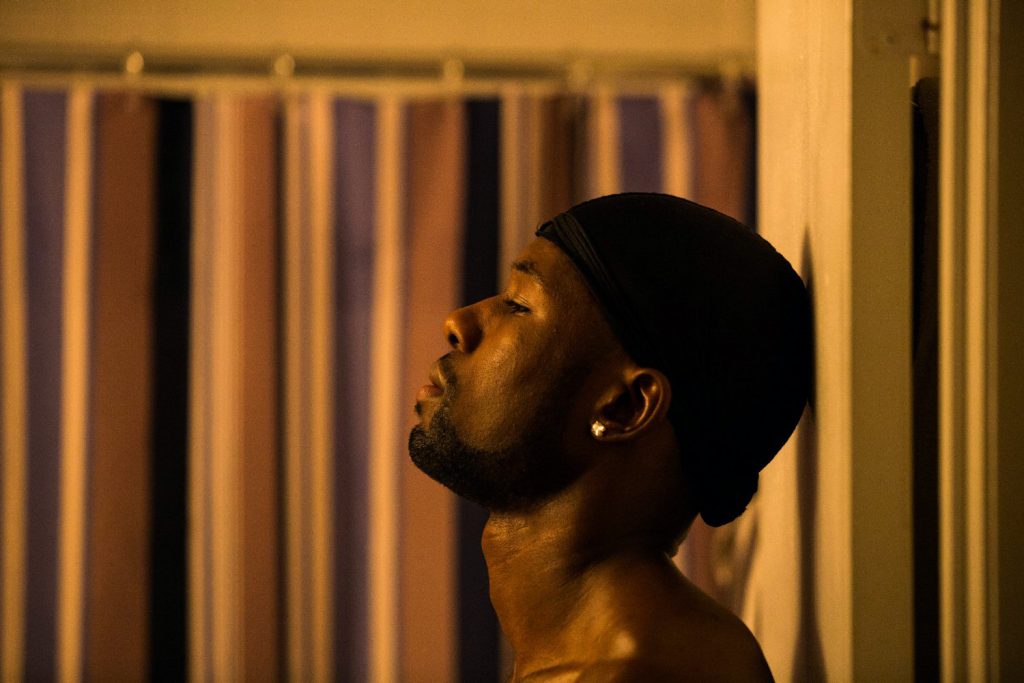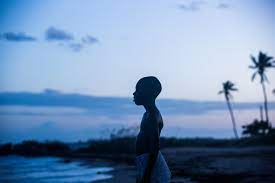No other film has moved me in the way Moonlight has. I am almost embarrassed to admit that I was seven years late in watching it. I remember the film winning the Academy Award for Best Picture in 2017 and having finally had the chance to cross it off my watchlist this year, I have to say; this is a film I will never forget.
Directed by Barry Jenkins, Moonlight follows the life of Chiron, a young Black man growing up in Miami, Florida, who struggles coming to terms with his sexuality. The film is divided into three acts, with three separate actors portraying Chiron, each named after the nicknames Chiron presents himself through in childhood, adolescence and adulthood. It is a timeless story, and in some ways evocative of Satyajit Ray’s ‘The Apu Trilogy’, as both share an epic triptych structure, documenting the tribulations through the protagonist’s transition into manhood over the backdrop of poverty.
Act i: Little introduces Chiron as ‘Little’ (played by Alex R. Hibbert), who is frequently bullied and has to fend for himself due to his mother, Paula (Naomi Harris), falling into a drug addiction. One day Juan (Mahershala Ali), the local drug dealer, notices Chiron running from bullies and begins to care for Little with the help of his girlfriend Teresa (Janelle Monáe). Juan takes the place of a surrogate father figure and begins to bond with Little by welcoming him to his home, offering advice and teaching him to swim. In one memorable scene, Juan and Little sit by the beach and Juan tells Little a story from his childhood, where an old lady had told him that “In moonlight, Black boys look blue”. Juan explains that he was nicknamed ‘Blue’ (like Chiron is called ‘Little’) but emphasises the importance of deciding one’s identity for oneself, instead of trying to appease others. This conversation begins to unravel Moonlight’s intricate subtext centring identity, particularly its intersections with masculinity, sexuality and race, as from childhood Chiron is conflicted between choosing to be his true self or constructing a façade to survive. Juan’s character, arguably the most influential in Chiron’s life, cares for Chiron but is also someone that is shrouded in contradiction. Being a drug-dealer, he supplies his whole neighbourhood with narcotics, including Paula, making him partially responsible for Chiron’s plight. This complexity of character distinguishes Moonlight from other films in the coming-of-age genre. Most of the people in Chiron’s life are inconsistent in matching their values with their being, making it harder for Chiron to navigate his own identity.
Act ii: Chiron (played by Ashton Sanders) follows his time as a teenager. Paula is now fully dependent on drugs and largely absent from Chiron’s life, only coming back now and then for money to fund her addiction. Juan has passed away and Chiron faces severe homophobic bullying despite not being publicly out. In a pivotal scene, under the dim moonlight and cool breeze of the ocean, Chiron confides in childhood friend Kevin (Jharrel Jerome) and they share an intimate moment at the beach. Besides Teresa, Kevin is the only one who actively takes an interest in Chiron’s life and Chiron finds solace within their relationship. This is short-lived however, as Kevin brutally punches Chiron after being pressured by his peers, even after their night together on the beach. Chiron retaliates and is arrested shortly after. The film subtly comments on the corrosiveness of performative masculinity that focuses more on proving one’s masculinity to others, than being secure in one’s own self. Social acceptance plagues both Chiron and Kevin but in Chiron it pushes him further away from his truth. However, this machismo-esque brand of masculinity is disparate from that once embodied by Juan, who was calm, caring and patient with the ability to be vulnerable when required.
Chiron emerges in Act iii: Black with a distinctively different look from Act ii. Played by actor Trevante Rhodes, Chiron goes by the name ‘Black’, and is a far cry from the shy, gawky teenager we remember from the second act. Instead, he exudes swagger, sporting a defined, muscular physique, adorned with gold grills and chains. It is revealed that he is now a drug dealer, drawing parallels to Juan’s character. I imagine this new appearance comes from a place of self-preservation, as by looking strong and materially successful can in some way shield him from the relentless bullying and harassment that followed him throughout his childhood and adolescence. However, despite being externally tough, Black is still haunted by his past. In the third act, Black shares an emotional reunion with his estranged mother, where now sober Paula seeks his forgiveness. Unexpectedly, he is also contacted by Kevin (André Holland) who apologises for what transpired in their past and suggests that Black come to visit him sometime in his diner. From the first look, even after all those years, it is evident that the chemistry is still there. After their meeting in the diner Kevin invites Black to his apartment. They talk in the kitchen about their lives and it is here through one of the final lines that I believe delivers the film’s most poignant moment. Black apprehensively sheds his bravado and admits to Kevin: “You the only man that’s ever touched me”. With a declaration so uncompromisingly honest and hard-hitting, it is a heartbreaking revelation that Black has gone longer than a decade without being intimate or vulnerable with anyone in the same capacity as he was with Kevin, probably due to the fear that it would end in betrayal and heartbreak just like in his adolescence.
Moonlight has clear elements of tragedy. The only time Chiron is himself is in the second act, where he does not hide behind a nickname or false persona but is also punished for it severely by the people in his life and community resulting in a decade of repression. After Black’s sincere disclosure to Kevin, it presents the question as to what happened after that night. Does Chiron return to his stoic, hyper-masculine guise or does he finally start to live freely after the catharsis of reconnecting with his mother and old friend? Submerged in a swathe of deep blue, the final shot shows Chiron as Little, standing in front of the restless ocean, where Juan once taught him to swim, only to look back directly and break the fourth wall. I like to believe this is where Chiron finally makes peace with his past and is closer to accepting himself as someone worthy of love.
Plot aside, the cinematography of this film is sublime. Never have I watched a movie so immersive. The camera follows the characters closely, utilising tracking shots to sway with their movement, at times echoing characters’ disconcertment. Visually, each act has its own look, alternating from bright landscapes to darker, moodier shots, letting the audience get a glimpse of Chiron’s world through his eyes as he metamorphosises. The ocean and water are a recurring motif, with Chiron using them to console himself in times of unease. Lighting is dreamlike, using striking blues to contrast and underlay the actors’ darker skin-tones, consequently referencing Juan’s moonlight anecdote, whilst also upholding the colour’s obvious association with melancholia and masculinity. Dialogue is minimalist as characters communicate largely through noticeable periods of silence. Amazingly, all three actors playing Chiron convey the same quiet torment through their glares, perfectly encapsulating Chiron’s feelings of emptiness and isolation. It is as if nothing has to be said for you to know what Chiron is thinking.
With intuitive direction, breathtaking visuals and enthralling acting performances from the entire cast, Moonlight is a modern masterpiece. It is an important film, one that touches on the queer Black experience like never before. It is also deeply poetic, encompassing both the beauty and respective pain in growing up, as well as showing the long-standing impact that inner struggle, neglect and trauma can have on a person. Through the empathetic portrayal of its characters and authentic coming-of-age narrative, there is something in this movie for everyone. It is unquestionably a must-watch.

